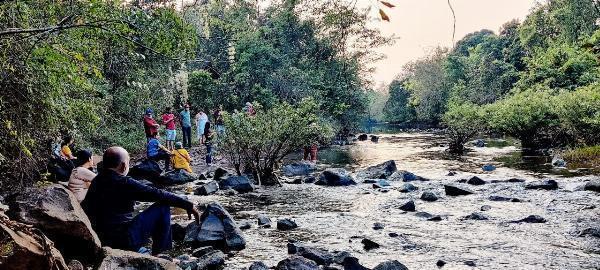Researchers develop game-changing system to predict major natural disasters: 'Instrumental in early warning systems'
For years, scientists have issued warnings about rising ocean temperatures, as warmer waters can pose dangers to people and the planet.
Now, researchers at the Ulsan National Institute of Science and Technology in South Korea have developed a system leveraging artificial intelligence to overcome the shortcomings of satellite data tracking sea surface temperatures. According to a release in late June, the model can produce "continuous, high-resolution … datasets with unprecedented accuracy."
These datasets could provide crucial information to scientists monitoring ocean temperatures. Warming waters have been linked to a range of extreme weather events, including those associated with El Niño and La Niña systems.
The research team's innovation, recently described in the journal Remote Sensing of Environment, could help to address gaps in satellite data. Everyday events, such as cloud cover and storms can hinder satellites. The addition of AI could strengthen information reliability.
Jungho Im, who led the UNIST research team, said in the release that "this technology could also be instrumental in early warning systems for marine disasters, such as marine heat waves, helping to safeguard communities and ecosystems."
The United States National Oceanic and Atmospheric Administration has estimated that "more than 90 percent of the excess heat trapped in the Earth system due to human-caused global warming has been absorbed by the oceans." With the potential to intensify rainfall, droughts, and periods of extreme heat, these temperatures can also provide data points to track.
The Guardian reported in April that ocean heat waves, which can wreak havoc on reefs and other marine habitats, have tripled in length as a result of the climate crisis.
The Blob, a marine heat wave that lasted from 2013 to 2016 and stretched from Alaska to Mexico, was one of the longest on record. It led to fishing shortages, impacting humans and seabirds too. It also caused some species to migrate beyond their normal ranges.
Warmer waters can also foster algae blooms. Toxic algae can poison sealife and disrupt food chains. Additionally, if algae and phytoplankton begin to grow in different areas, the food systems that rely on them can be compromised.
The thermal expansion of water due to increased heat also exacerbates rising sea levels, and warmer water can melt glaciers more rapidly. Higher sea levels can increase the risk of more destructive floods and surges for coastal communities.
Do you think our power grid needs to be upgraded?
Definitely
Only in some states
Not really
I'm not sure
Click your choice to see results and speak your mind.
It's worth noting that the use of AI can also have negative impacts on the environment. A great deal of energy and huge amounts of water are required to cool the data centers that power it.
Still, this and some other applications of the technology could offer some key climate benefits worth exploring.
Speaking to the impact of this new study, Im said, "This advanced reconstruction technology is particularly crucial for the Northwest Pacific, a region prone to frequent typhoons and climate variability."
Join our free newsletter for weekly updates on the latest innovations improving our lives and shaping our future, and don't miss this cool list of easy ways to help yourself while helping the planet.










![Structural Adhesives Market [2028] Exploring Potential, Growth, Future & Trends](http://www.paseban.com/zb_users/upload/2025/08/20250831123209175661472915180.jpg)



